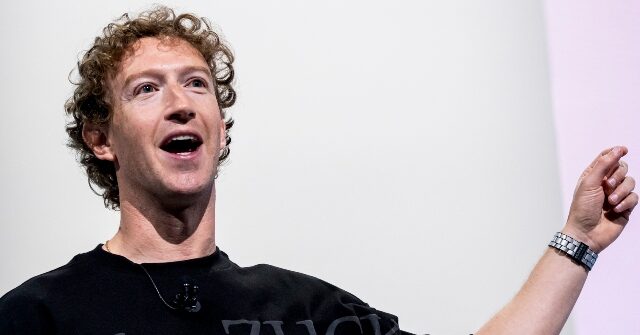In a recent earnings call, Meta CEO Mark Zuckerberg predicted a significant shift toward AI-generated content on social media platforms like Facebook and Instagram, suggesting it will become the next big trend in user-generated content. He acknowledged the growing prevalence of low-quality AI-generated posts and images, which have become a source of frustration for many users. Despite this, Zuckerberg emphasized that the evolution toward AI-generated content is a natural progression, moving from the initial focus on friend and family content curation to current practices that prioritize engagement through creator-based algorithms. He posited that AI-generated posts will soon represent a substantial portion of content shared across social media channels.
Zuckerberg outlined the trajectory of social media, starting with algorithms that prioritized connections with family and friends to the current engagement-driven models that feature a wider array of creators and influencers. As users’ demands and the technological landscape evolved, platforms switched their focus to content that generates higher engagement levels. Zuckerberg’s assertion is that AI-generated content represents the next logical step in this evolution, one that Meta aims to harness and shape in the coming years.
To date, Meta has already invested in AI technology, notably with its Llama large language model, which supports various products, including a chatbot that boasts over 500 million monthly users. Zuckerberg revealed that Llama will have an increasing role across Meta’s offerings, enhancing tools for both business customers and advertisers. This focus on AI tools is indicative of the company’s strategy to position itself at the forefront of AI integration within social media.
As AI becomes more ubiquitous, Meta is experimenting with how AI-generated content can be incorporated into users’ feeds. Zuckerberg hinted at ongoing tests aimed at determining the best approaches to maximize the impact of this new wave of content. Although the precise formula remains under development, initial experiments indicate potential for success, paving the way for AI-generated material to enrich user experiences on Meta’s platforms.
Currently, signs of this anticipated shift can be observed on platforms such as Facebook, where a significant number of postings labeled as “AI slop” are circulating. Many of these AI-generated images and content are created with the intention of going viral, benefiting from Facebook’s creator payment program that rewards engagement with financial incentives. Some analysts predict that by 2026, a staggering 90% of social media posts may be generated by artificial intelligence, reflecting a drastic change in content creation dynamics.
The rise of AI-generated content raises profound questions about the future of human creativity and the roles of artists, writers, and other content creators in an increasingly automated landscape. As AI systems become capable of producing vast amounts of content rapidly, the traditional indicators of creativity and authenticity may be undermined. This transformation invites a deeper consideration of what it means to create and reproduce artistic work in the age of AI, sparking discussions about the balance between human and machine-generated content in the creative economy.

